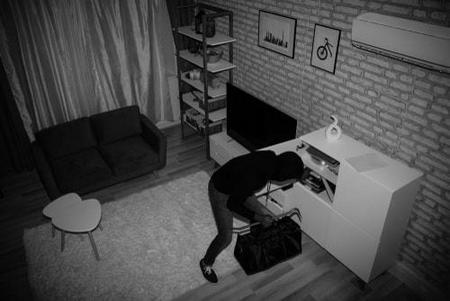Recent Blog Posts
What Are the Penalties for Heroin Possession in Illinois?
 A Du Quoin man was found in possession of a small amount of heroin in early April. That was a violation of his parole and he was sent back to the Illinois Department of Corrections to serve out the rest of his sentence on previous charges.
A Du Quoin man was found in possession of a small amount of heroin in early April. That was a violation of his parole and he was sent back to the Illinois Department of Corrections to serve out the rest of his sentence on previous charges.
Heroin possession is considered one of the most serious drug crimes in Illinois. Those convicted will have a criminal record for the rest of their life and could face several years in prison, as well as extremely high fines. While the penalties for heroin possession are extremely harsh within the state, a criminal defense lawyer can help those charged and give them the best chance of a successful outcome in court.
Illinois Law on Heroin
Heroin is classified as a Schedule 1 drug on the Illinois Controlled Substances Act and is illegal for anyone to possess, manufacture, or distribute. The specific classification of being on Schedule 1 means that heroin is considered a “hard” drug. In the eyes of the law, this is the most serious designation and as such, law enforcement and the prosecution pursue these cases aggressively.
Illinois Considers Reducing Minimum Sentences for Certain Charges
 Illinois lawmakers want to change the laws on mandatory minimum sentences for some crimes. In mid-April, the Illinois House of Representatives voted on legislation that would give judge’s more discretion during sentencing. If recent House Bill 1587 becomes law, judges could consider further reducing minimum mandatory sentences for individuals convicted of drug possession, retail theft, and driving on a revoked license because of unpaid fines, child support, and other financial obligations.
Illinois lawmakers want to change the laws on mandatory minimum sentences for some crimes. In mid-April, the Illinois House of Representatives voted on legislation that would give judge’s more discretion during sentencing. If recent House Bill 1587 becomes law, judges could consider further reducing minimum mandatory sentences for individuals convicted of drug possession, retail theft, and driving on a revoked license because of unpaid fines, child support, and other financial obligations.
The Court System and the Proposed Law
Currently, when a defendant is convicted of a crime, a judge has a range of sentences to choose from during sentencing. Each crime has a minimum mandatory sentence, as well as a maximum mandatory sentence. Judges are granted some discretion, but they cannot move outside of that range. A judge will consider a defendant’s past criminal history, and the nature surrounding the crime and determine what sentencing within that range is fair.
What to Expect When Charged with Domestic Violence
 Being accused of domestic violence can be terrifying. It is likely that your accuser is someone you love, and there is a possibility you could end up with a criminal record. Not knowing what is going to come next is one of the most frightening aspects of the entire process.
Being accused of domestic violence can be terrifying. It is likely that your accuser is someone you love, and there is a possibility you could end up with a criminal record. Not knowing what is going to come next is one of the most frightening aspects of the entire process.
While each domestic violence case is different, there are a few similarities they all share. They all typically begin with a phone call to the police, reporting the domestic violence. It is important for anyone to understand that once this happens, the decision to lay charges does not rest with the alleged victim. When police respond to a 911 call to report domestic violence, they must make an arrest. After the arrest is made, the accused will face a number of hearings and possibly a trial.
The Bond Hearing
When people are accused of committing a crime, they are often able to post bond or bail. This releases them from the police station until they have their first hearing in front of a judge. According to the Illinois Code of Criminal Procedure, however, bond is not possible for those accused of domestic violence. At least, not right away.
When Does Burglary Become a Serious Felony?
 Recently, thieves broke into a Lincoln Park bike shop. It is estimated that approximately $20,000 in merchandise was stolen. It was also the second time in the same month the shop was targeted. Police do not yet have anyone in custody for this latest crime that seems to be part of a rash of burglaries in the same neighborhood.
Recently, thieves broke into a Lincoln Park bike shop. It is estimated that approximately $20,000 in merchandise was stolen. It was also the second time in the same month the shop was targeted. Police do not yet have anyone in custody for this latest crime that seems to be part of a rash of burglaries in the same neighborhood.
Some may consider this burglary, while others may consider the value of the goods stolen and think it is a burglary, but one with a more serious charge. The confusion begs the question, when does burglary become a serious felony in Illinois?
The Crime of Burglary in Illinois
Under Illinois law, burglary is defined as the act of entering a structure illegally with the intent to steal property or commit another serious felony. Normally, burglary is charged as a Class 2 felony, regardless of the amount of goods stolen. This means that the crime is always a felony.
When Is Meth Possession a Felony in Illinois?
 The drug laws in Rolling Meadows and throughout Illinois are often confusing, and the line between a misdemeanor drug charge and a felony charge can become blurred. Most of the time, the charge that is laid depends on the scenario surrounding the alleged crime.
The drug laws in Rolling Meadows and throughout Illinois are often confusing, and the line between a misdemeanor drug charge and a felony charge can become blurred. Most of the time, the charge that is laid depends on the scenario surrounding the alleged crime.
There are instances though, in which a drug crime is automatically a felony. Typically a harsher charge is laid when there are large volumes of a controlled substance involved, or when the crime includes certain substances. LSD, cocaine, and heroin are a few drugs that automatically make a crime a felony. Methamphetamine, or meth, is another.
Methamphetamine Laws in Rolling Meadows
According to 720 ILCS 646/60 of the Illinois statutes, meth crimes are always charged as a felony. This means that even when a person is caught with the smallest amount on them, and they did not intend to distribute the drug, they will face felony charges.
Is There a Lookback Period in Illinois for DUIs?
 Many states have a lookback period for DUI convictions. A lookback period, which is typically five to 10 years, indicates the amount of time a DUI conviction remains on a person’s driving record. This is helpful for those charged with subsequent DUIs because the prosecution and courts can only see DUIs within that timeframe. If a person was convicted of a DUI but the conviction took place longer than the lookback period, that DUI is not considered during sentencing.
Many states have a lookback period for DUI convictions. A lookback period, which is typically five to 10 years, indicates the amount of time a DUI conviction remains on a person’s driving record. This is helpful for those charged with subsequent DUIs because the prosecution and courts can only see DUIs within that timeframe. If a person was convicted of a DUI but the conviction took place longer than the lookback period, that DUI is not considered during sentencing.
So, is there a lookback period in Illinois for DUIs?
Lookback Period in Illinois
Unfortunately, in Illinois, there is no lookback period for DUIs. If a person is convicted of a DUI, it remains on their permanent driving record. This means the prosecution and judge can charge for a subsequent DUI no matter how long ago the first conviction occurred.
However, the courts will still take into consideration the length of time between a first offense and subsequent offenses when revoking a person’s driver’s license. For this reason, it is important anyone charged with a DUI speaks to a Rolling Meadows DUI lawyer that can help them beat the charges and continue to enjoy an unblemished permanent driving record.
Understanding Your Rights and Responsibilities During a Traffic Stop
 Many people do not have much interaction with the police. If they do, the chances are good that it is going to happen during a traffic stop. Even then, many people will only get pulled over two or three times while they are behind the wheel. When it happens, it is often very stressful. People imagine the worst as they sit in their car and watch the officer approaching.
Many people do not have much interaction with the police. If they do, the chances are good that it is going to happen during a traffic stop. Even then, many people will only get pulled over two or three times while they are behind the wheel. When it happens, it is often very stressful. People imagine the worst as they sit in their car and watch the officer approaching.
In these cases, people are sometimes prepared to cooperate with the officer and do whatever they ask. These individuals do not understand that they have rights, and are not required to comply with everything an officer may request. Still, others may think they do not have to follow anything an officer instructs them to do at a traffic stop. These individuals may become belligerent or aggressive at a traffic stop.
Harsher Penalties Now in Effect for Wrong-Way DUI Crashes
 Often with a new year comes new laws, and 2019 was no different. In fact this year, over 250 new laws went into effect on January 1, 2019. One, in particular, affects those charged with a DUI while traveling on the wrong side of the road. Now, wrong-way travel is an aggravating factor in sentencing for DUIs.
Often with a new year comes new laws, and 2019 was no different. In fact this year, over 250 new laws went into effect on January 1, 2019. One, in particular, affects those charged with a DUI while traveling on the wrong side of the road. Now, wrong-way travel is an aggravating factor in sentencing for DUIs.
What exactly does the new law entail, though? And what does it mean for drivers in Rolling Meadows?
The New DUI Law
House Bill 4554 was debated throughout most of 2018. In August of that year, Governor Bruce Rauner signed the bill that would become law in January of the new year.
The new law amends a section of the Illinois Criminal Code. It does not, however, actually change the drunk driving laws in Illinois. Those found driving with a blood alcohol concentration of 0.08 or higher will still likely be charged with driving under the influence. This will apply regardless of the side of the street they were driving on at the time, or whether or not the DUI driver caused an accident.
Are Porch Pirates Burglars?
 The holidays are over, but that has not stopped porch pirates from scooping up items left on porches. In a recent case, a porch pirate was caught on a security camera stealing a unicorn from the porch of a Wicker Park home in the early morning hours. Unlike most porch pirates heard of in the news, the unicorn was not a package delivered by a postal service or courier. Instead, a two-year-old living in the home had simply left it on the porch.
The holidays are over, but that has not stopped porch pirates from scooping up items left on porches. In a recent case, a porch pirate was caught on a security camera stealing a unicorn from the porch of a Wicker Park home in the early morning hours. Unlike most porch pirates heard of in the news, the unicorn was not a package delivered by a postal service or courier. Instead, a two-year-old living in the home had simply left it on the porch.
This type of crime is clearly against the law. However, this is one area of law that is not as clear as others. Are porch pirates considered burglars in the eyes of the law? Or, are they charged with another crime, such as petty theft?
Definition of Burglary in Rolling Meadows
According to 720 ILCS 5/19-3, residential burglary in Illinois is defined as when a person enters a dwelling, or any part thereof, without permission with the intent to steal another person’s property. The statute also states that anyone convicted of residential burglary is guilty of a Class 1 felony. In Illinois, a conviction of residential burglary can carry sentences of four to fifteen years in prison.
Challenging a Search Warrant
 During a criminal trial, the prosecution’s case often rests on evidence seized by law enforcement officers during a search. In order for that search to be lawful, the owner of the property must voluntarily agree to the search, or law enforcement officers must have a valid search warrant. When police officers have a search warrant, the owners of the property must never interfere with the search. However, this does not mean that the search cannot be contested in the future.
During a criminal trial, the prosecution’s case often rests on evidence seized by law enforcement officers during a search. In order for that search to be lawful, the owner of the property must voluntarily agree to the search, or law enforcement officers must have a valid search warrant. When police officers have a search warrant, the owners of the property must never interfere with the search. However, this does not mean that the search cannot be contested in the future.
Challenging a search warrant during a trial is a very common defense for those accused of committing a crime. If the defense can prove a search was unlawful, any evidence obtained during that search is deemed inadmissible in court. This can lead to the entire case being dismissed.
So, how does one challenge the validity of a search warrant? In Rolling Meadows, there are three possible ways to do it.
Unlawful Items Seized
With a search warrant, law enforcement officials must indicate the exact property they plan to search, and the evidence they are looking for. When they conduct the search, they are only allowed to take the property specified in the warrant. If they find evidence of another crime, or evidence such as electronic data that was not listed on the search warrant, they cannot seize that property.






















